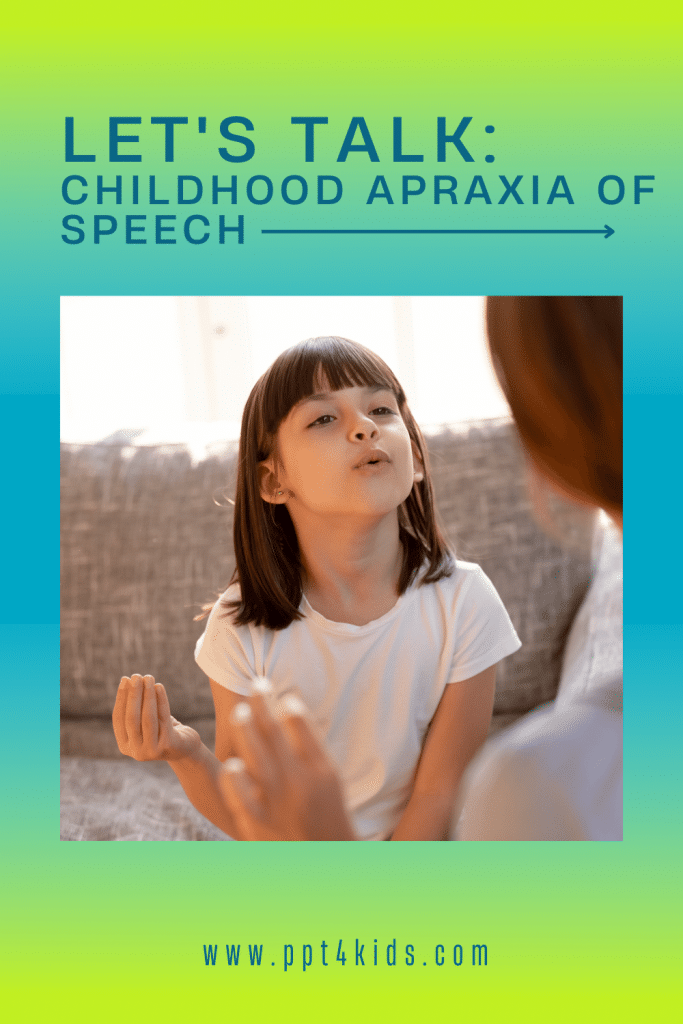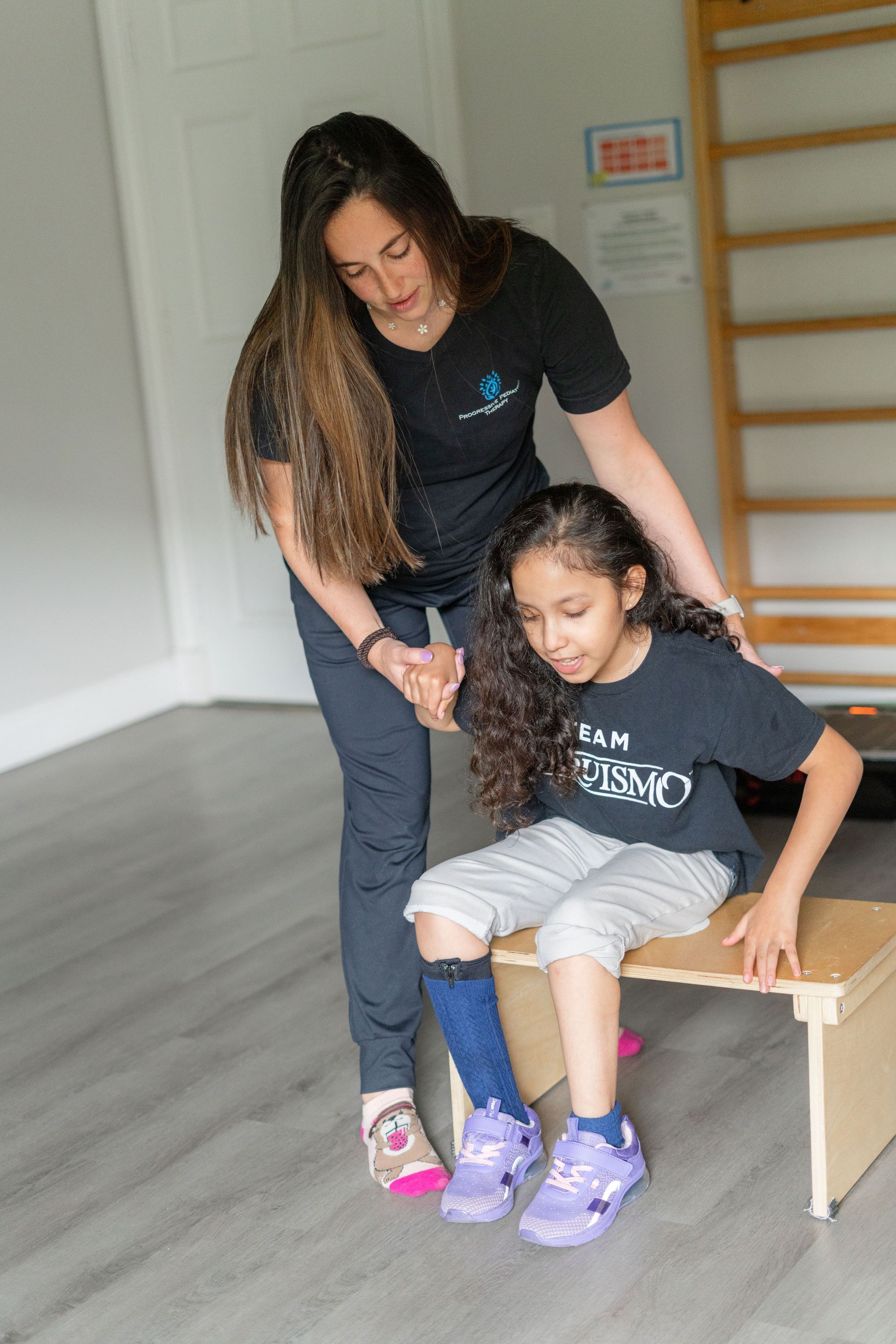Your Clinic
SET A LOCATION
Your Clinic
SET A LOCATION

Childhood apraxia of speech (CAS) is a speech disorder that makes the physical production of sounds and words difficult. A child who has CAS will have difficulty developing the motor plans required for the accurate production of speech sounds. This means that the messages the brain sends to the articulators (including how to move the lips, jaw, and tongue) are not followed correctly. This disorder can be very frustrating for children as they often know exactly what they want to say, but may not be able to say it.
Each child with childhood apraxia of speech will look different. Some common characteristics of this speech sound disorder include:
Children who have CAS will often have delayed babbles (later than one year of age) and first words (later than 12-18 months of age), use only a few consonants and vowel sounds rather than a wide variety, frequently leave out or add sounds to words, and have speech that is overall very difficult to understand.

The best way to know if your child has CAS is to have them evaluated by a licensed speech-language pathologist. The SLP will ask you many questions including if your child currently uses any words, how many words they have, when they began talking and/or babbling, and for any relevant medical history. The SLP will assess your child to look at the number of different consonant and vowel sounds they can produce, how they produce words of various syllable counts, and will look for patterns in speech sounds errors. The clinician will also want to rule out any other diagnoses including the possibility of a tongue and/or lip tie, and any language delays.
The treatment of childhood apraxia of speech requires treatment from a trained speech-language pathologist. The SLP will help your child improve how they are able to produce various sounds, syllables, and words. The focus of CAS treatment is often on the physical movements and sequences of speech sounds to help create more accurate motor plans. Children with CAS tend to benefit from multi sensory input (combining tactile, visual, and auditory) as well as many repetitions of the target to improve carryover outside of the speech therapy session.

It is common for children with CAS to become very frustrated when attempting to communicate. Imagine how you would feel if you wanted to do something as simple as ask for a snack or even say “No!”, but no one understood you. Speech therapy treatment is important for children with CAS so they can learn how to express their wants and needs effectively and so that they can socially communicate with their peers.
The post Let’s Talk: Childhood Apraxia of Speech appeared first on PPT4Kids.









We empower children, families, and the community to learn, grow, and celebrate every child's unique abilities.
Quick Links
Contact Details
Phone: 561-376-2573 | 561-918-0190
Fax: 561-218-4939
VIP Concierge: 561-717-1764
Clinic Locations
All Rights Reserved | Progressive Pediatric Therapy, Inc. | Privacy Policy | Terms of Service
Site by Spearlance